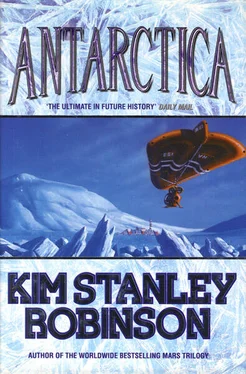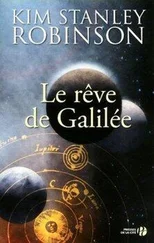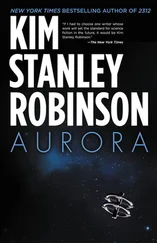So hither and yon Val’s clients wandered, calling out to each other at every pile of stone or snow. Several were trying to read their copies of The Worst Journey in the World by flashlight, to see if the text could direct them. Val heard some complaining about the vagueness of Cherry-Garrard’s descriptions, which was not very generous given that young Cherry had been terribly near-sighted and had not been able to wear his thick glasses because they kept frosting up, so that among the other remarkable aspects of the Worst Journey was the fact that one of the three travelers, and the one who ended up telling their tale, had been functionally blind. A kind of Homer and Ishmael both.
Val sat on a waist-high rock next to a couple of the film crew, who had given up filming for the moment and were plugging their gloves into a battery heater and then clasping chocolate bars in the hope of thawing them a bit before eating. They were laughing at George, who was now consulting a copy of Sir Edmund Hillary’s book No Latitude for Error , which recounted the first discovery of the rock hut, forty-six years after it had been built. Hillary and his companions had been out testing the modified farm tractors they would later drive up Skelton Glacier to the South Pole, and once at Cape Crozier they had wandered around like Val’s companions were now, with their own copy of Cherry-Garrard’s book and nothing more; essentially theirs had been the experience Val’s companions were now trying to reproduce, for at that time Cherry-Garrard’s description of the site was the only guide anyone could have, with no GPS or anything else to help. So Hillary and his companions had argued over Cherry’s book line by line, just like Val’s group was doing now, only in genuine rather than faked frustration, until Hillary himself had located the hut.
His book’s account of the discovery, however, also proved to have a certain vagueness to it, as if the canny mountaineer had not wanted to reveal an exact route. Although he had said, as George was proclaiming now, that the hut was right on the line of the ridge, and in a saddle. “‘As windy and inhospitable a location as could be imagined!’” George read in an angry shout.
“We should be filming this,” Geena noted.
“Elka’s getting it,” Elliot said calmly.
Sir Edmund was proving as little help as Cherry-Garrard. It occurred to Val that someone could also look up the relevant passages in Mear and Swan’s In the Footsteps of Scott , for those first re-enacters, the unknowing instigators of an entire genre of adventure travel, had also relocated the hut in the pre-GPS era, and had published a good photo of it in their book. But it was a coffee-table book, Val recalled, and probably no one had wanted to carry the weight. Anyway no book was going to help them on this dark wild ridge.
Elliot echoed her thought: “A classic case of the map not being the territory.”
“Although a map would help. I don’t think they’re gonna find it without GPS.”
“Has to be here somewhere. They’ll trip over it eventually.”
“It’s too dark now.”
And the wind was beginning to hurt. People were beginning to crab around with their backs to the wind no matter which way they were going. It was loud, too, the wind moaning and keening dramatically over the broken rock.
“I’ll give you even odds they find it.”
“Taken.”
“I can’t believe they camped in such an exposed place.”
“They wanted to be close to the penguins.”
“Yeah, but still.”
Indeed, Val thought. She would never have set a camp here on the ridge; it was one of the last places on Cape Crozier she would have chosen. And Wilson had known it was exposed to the wind, his diary made that clear. But he had decided to risk it anyway, because he too had been concerned about losing their camp in the darkness, and he had wanted it to be where they could find it at the end of their trips out to look for penguins. Fair enough, but there were other places that would have been relocatable in the dark. Putting it up here had almost cost them their lives. Oddly, Cherry-Garrard had claimed in his book that the hut had been located on the lee side of the ridge, thus protected from direct blasts; he had also explained that later aerodynamic science of which Wilson could not have been aware had revealed that the immediate lee of a ridge was a zone of vacuum pull upward, which is what had yanked their roof off when the wind reached Force Ten. But since the shelter actually was right on the spine of the ridge, as Hillary had noted (Val was pretty sure she could see it down in the saddle below her, a big hump of snow among other big humps of snow) it was hard to know what Cherry had been getting at—either making excuses for Wilson’s bad judgment, or else so blind he truly hadn’t known where they had been.
“It certainly looks like another stupid move to be chalked up against the Scott expedition,” Elliot said.
“Maybe it’s infectious,” Geena said. “A regional thing.”
“Below the 40th latitude south,” Elliot intoned “there is no law. Below the 50th, no God. And below the 60th, no common sense.”
“And below the 70th,” Geena added, “no intelligence whatsoever.”
There was little Val could say to contradict them. After all, here were a couple dozen people staggering around in a frigid wind, just to the left, the right, the before and the beyond of an oval rock wall that any of them could have found after a ten-second consultation with their GPS. One of them was actually tripping over the end of the shelter at this very moment!
But Val said nothing.
It got colder.
“These Footstep things,” Geena complained. “Want some hot chocolate?”
“I like them,” Elliot said, taking the thermos from her. “You get to add historical footage to the usual stuff, it’s great.”
“Be careful, it’s hot.”
“I worked for Footsteps Unlimited for a while. Popularly known as F.U., because that’s what the clients were most likely to say to each other after they got back.”
“Ha ha.”
“I also freelanced for Classic Expeditions of the Past Revisited, which its guides called Stupid Expeditions of the Past Revisited, because the trip designers always chose the very worst trips in history, sometimes with the original gear and food.”
“You’re kidding.”
“No. But you’ll notice they’re out of business now.”
“Masochist travel—a new genre, still underappreciated.”
“It’ll catch on. All travel is masochist. People will do anything. I shot Hannibal’s crossing of the Alps, elephants included—Marco Polo, Italy to China by camel—Scott’s walk to the Pole—Napoleon’s retreat from Moscow.” He pulled up his facemask and drank from the thermos. “That one was colder than this.”
“Wow. I shot a gig with Condemned to Repeat It once, where we followed Stanley’s hunt for Livingstone. People said it was more dangerous to do now than it was then.”
“Condemned to Repeat It?”
“You know—those who know history too well are condemned to repeat it.”
“Ah yeah. But some of those old trips are unrepeatable no matter what, because they were impossible in the first place.”
“Sure. I heard Shackleton’s boat journey was a total disaster.”
Val’s stomach tightened. She had guided that one herself, and did not want to talk or think about it. Now she saw Elliot making a gesture with his thumb up her way, to warn Geena. That’s the guide right there, shhhh, don’t mention it! God. What a thing to be known for. Val had guided every Footsteps expedition in Antarctica, from Mawson’s death march to Borchgrevink’s mad winter ship, even fictional expeditions like the one in Poe’s “Message Found in a Bottle” (including the whirlpool at the end), or in Le Guin’s “Sur” (the latter of which ended with an emotional meeting with the author, the women thanking her for the idea and also making many detailed suggestions for logistical additions to the text, all of which Le Guin promised to insert the next time she revised it)—all these very difficult trips guided, practically every early expedition in Antarctica re-enacted—and what was she remembered for? The fiasco, of course.
Читать дальше











